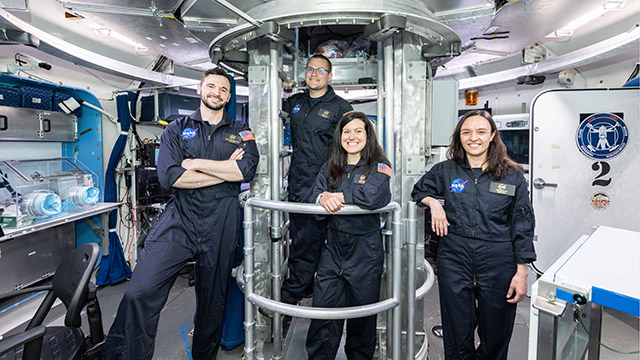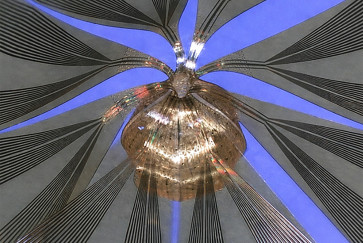Three Northwestern University faculty members — Linda Teplin, Danna Freedman and Noshir Contractor — presented their innovative research at the recent 2021 annual meeting of the American Association for the Advancement of Science (AAAS). The meeting, “Understanding Dynamic Ecosystems,” was held virtually last week. Teplin and Contractor also participated in press briefings.
The Northwestern researchers and their talks were:
Experience of youth incarceration
Many studies have examined incarceration as an outcome; far fewer have examined the long-term consequences of incarceration on psychosocial outcomes. Using longitudinal data from the Northwestern Juvenile Project, Linda Teplin discussed at a scientific session and a press briefing how the experience of youth incarceration affects age-appropriate life course achievements, such as socioeconomic well-being, interpersonal functioning and mental health. She also examined how consequences differ by sex and race/ethnicity.
Despite recent publicity about mass incarceration, few empirical studies have examined its short- and long-term consequences on health inequities and racial injustice. Teplin addressed this omission in her presentation that was part of the session “Consequences of Incarceration on Health Inequity and Racial Injustice.” This session, organized and moderated by Teplin, convened the principal investigators of four landmark studies.
Among the key findings Teplin shared was the high mortality rate of youth who have passed through the juvenile justice system. Since the study began, 10.7% of study participants had died, at an average age of 27 years. The leading cause of death was firearms. When breaking down deaths by racial and gender differences, among Black males who died, 68% were killed by firearms compared to 26% of white males. Among males overall, approximately one in four had been injured or killed by firearms.
“Our first priority: avoid incarcerating children,” Teplin said at the press briefing when asked for her number one policy recommendation. “Kids from wealthy families are rarely incarcerated. If caught using or selling drugs, the school calls the parents, not the police. And the parents can afford services. Most youth in detention are poor and are incarcerated when our systems fail them. Even a two-week incarceration leads to a cascade of consequences: missing school causes them to fall behind, become disheartened, cut class and get into trouble. Continued delinquency can have dire consequences. A common outcome is death. Changing our current policies and improving services will reduce the likelihood that low-income kids fall between the cracks and into the juvenile justice net.”
Teplin, a behavioral scientist, is the principal investigator for the Northwestern Juvenile Project, the first large-scale longitudinal study of mental health needs and outcomes of 1,829 delinquent youth in the 15 years following their detention as juveniles. She is the Owen L. Coon Professor of Psychiatry and Behavioral Sciences and director of the Health Disparities and Public Policy Program in the department of psychiatry and behavioral sciences at Northwestern University Feinberg School of Medicine.
New way to access quantum computers
Quantum information science promises to revolutionize the way computation is performed, enabling the use of fundamentally new algorithms for applications such as quantum simulation and quantum cryptography. But in order to build a functional quantum computer, scientists first have to find a way to build scalable architectures. A recently discovered approach is based on modular components.
Danna Freedman shared novel insights on quantum chemistry’s ability to unlock access to molecules, revolutionize computing and open new fields of study. Her presentation was part of the scientific session “Designer Molecules: Understanding and Utilizing Their Quantum Nature.” In her research, Freedman approaches quantum systems from the bottom up — rather than building quantum bits from the same components as everyday electronics — which will enable the creation of next-generation quantum technology. Her cross-disciplinary team chemically synthesizes molecules that encode quantum information into their magnetic, or “spin,” states. This work paves the way for new understandings of molecules in ways that previously seemed impossible.
“Molecules are inherently tunable,” Freedman said. “Quantum information science is a broad field. Under the quantum information science umbrella, applications such as quantum sensing and quantum internet will have different requirements. What we will really need is ‘designer’ quantum units for these, and molecules have the potential to do this.”
Freedman is professor of chemistry in the Weinberg College of Arts and Sciences. She is a founding member of Q-NEXT, a transformative 100-person cross-institutional Department of Energy National Quantum Information Science Research Center established in August and led by Argonne National Laboratory.
Team problem-solving in space
Noshir Contractor discussed team problem-solving and human systems integration for exploration of deep space, such as travel to Mars. Contractor and Northwestern collaborator Leslie DeChurch, along with NASA researcher Suzanne Bell, have developed a computational model of crew relations using data from a dozen crews simulating long-distance space travel at NASA’s Human Exploration Research Analog (HERA) and Russia’s NEK facilities to help NASA predict conflicts before they happen.
“We got pretty good at it,” Contractor said on Feb. 10 during a AAAS press briefing. NASA challenged the team to come up with strategies to address the problems they could now predict.
“What we have been able to demonstrate is, not only can we predict like the weather forecasters do, but unlike the weather forecasters, we can actually fix the weather — we can fix relationships by predicting who is not going to get along and trying to find ways to mitigate against that,” he said.
Contractor discussed the predictive power of the model and researchers’ ability to anticipate and mitigate relations by re-pairing crew members on assigned tasks during the simulated mission.
His presentation was part of the scientific session “Understanding and Enabling Human Travel to the Moon and Mars,” moderated by DeChurch, Northwestern professor of communication and psychology and director of the ATLAS lab: Advancing Teams, Leaders, and Systems.
Contractor, a complex systems expert, is the Jane S. and William J. White Professor of Behavioral Sciences in the McCormick School of Engineering, the School of Communication and the Kellogg School of Management. He also is director of the Science of Networks in Communities (SONIC) research group at Northwestern.
The AAAS meeting, with dozens of sessions exploring recent developments in science and technology, draws thousands of researchers, educators, journalists and science enthusiasts from around the world. AAAS is said to be the largest general scientific society in the world.


